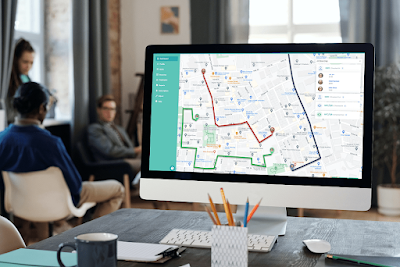Stress at work is a pervasive problem affecting millions worldwide. Chronic stress can lead to burnout, decreased productivity, and negatively impact both physical and mental health. However, there are numerous life hacks that can significantly reduce workplace stress. This comprehensive guide outlines various strategies to help you manage work-related stress effectively.
Workplace stress is often overlooked until it becomes unbearable. Recognizing its presence and addressing it promptly is crucial for maintaining a healthy work environment. By incorporating these life hacks into your routine, you can mitigate stress levels and enhance overall well-being.
1. Set Boundaries
Clearly defining work-life boundaries is essential for managing stress. Ensure that you establish specific times when you're unavailable for work-related communications. This includes avoiding email checks after work hours and setting limits on weekend availability.
Example:
"Designate 'work-free' zones in your home."
Tags: #WorkLifeBalance #BoundarySetting
2. Improve Communication
Effective communication is key to reducing misunderstandings and fostering a positive work environment. Regular feedback sessions encourage openness and clarity among team members. Discuss any issues directly with your supervisors or colleagues to resolve problems swiftly.
Tip:
"Suggest weekly team meetings to address ongoing concerns."
Tags: #CommunicationSkills #TeamBuilding
3. Organize Workshops
Hosting workshops on time management, emotional intelligence, and resilience equips employees with practical skills to tackle workplace challenges. These sessions foster camaraderie and shared learning experiences, enhancing teamwork and productivity.
Workshop Ideas:
- Time Management Techniques
- Emotional Intelligence Training
- Resilience Building Exercises
Tags: #EmployeeDevelopment #ResilienceTraining
4. Encourage Social Connections
Fostering social connections at work serves as a significant buffer against stress. Engage in team-building activities, host social events, and facilitate opportunities for employees to bond beyond work hours. Strong interpersonal bonds create a supportive environment where colleagues can lean on each other during difficult times.
Activities:
- Team Lunches
- Volunteer Days
- Casual Fridays
Tags: #TeamBonding #MentalHealthSupport
5. Implement Flexible Work Arrangements
Flexible work schedules can greatly aid in achieving a better work-life balance. Allow employees to choose their working hours or adopt remote work options whenever feasible. This flexibility enables workers to attend personal appointments, care for family members, or simply enjoy some quiet time without compromising performance.
Benefits:
- Reduced Commuting Time
- Increased Productivity
- Enhanced Job Satisfaction
Tags: #RemoteWork #FlexibilityAtWork
6. Prioritize Mental Wellbeing Programs
Promoting mental health initiatives is vital for reducing workplace stress. Introduce wellness programs offering access to counseling services, mindfulness classes, and digital mental health applications. Such measures demonstrate commitment towards supporting employees' emotional needs.
Program Ideas:
- On-Site Counseling Sessions
- Digital Wellness Apps
Example: Headspace or Calm
Features: Guided meditations, breathing exercises
Tags: #WellnessPrograms #MentalHealthAwareness
7. Enhance Time Management Skills
Efficient time management is fundamental to mitigating stress at work. Utilize techniques like the Pomodoro Technique—working in focused intervals followed by short breaks—to maintain productivity and reduce overwhelm. Employ time-tracking software to monitor progress accurately and stay accountable.
Tool Recommendations:
- Trello or Asana for Task Organization
Features: Kanban boards, due dates
- RescueTime for Time Tracking
Features: Detailed activity logs
Tags: #ProductivityTools #TaskManagement
8. Practice Self-Care
Engaging in regular self-care activities significantly contributes to lowering stress levels. Ensure adequate sleep, consume nutritious food regularly, and participate in physical activities such as walking or jogging. Exercise boosts mood and improves overall well-being.
Routine Suggestions:
- Morning Stretching
Benefits: Improved circulation
Duration: 15-minute routine
- Evening Walks
Benefits: Relaxation
Duration: At least half-hour
Tags:#SelfCareRoutines #FitnessTips
Conclusion
Reducing stress at work requires a multifaceted approach involving boundary setting, improved communication, organizational efforts, social connection promotion, flexible scheduling implementation along with prioritization of mental wellbeing programs enhancement via efficient time management practices coupled alongside consistent practice of self care activities. These hacks collectively aim to enhance the overall quality of life both in the office environment as well as the personal realm. Follow these practical tips and watch your stress levels decline overtime to achieve a healthier balance between professional responsibilities and personal life expectancies.
Tags:
#WorkplaceStressReduction #ProductivityBoosters #MentalHealthInitiatives #TimeManagementTechniques #SelfCarePractices

.jpg)








